Winners and Lightning Talks Announced for the 2021 Carol Hollenshead Inspire Award for Excellence in Promoting Equity and Social Change Award
Three University faculty members, one student-led group, and one staff-led group will receive the 2021 Carol Hollenshead Inspire Award for Excellence in Promoting Equity and Social Change. Read on to learn more about this year’s winners and view their lightning talks.
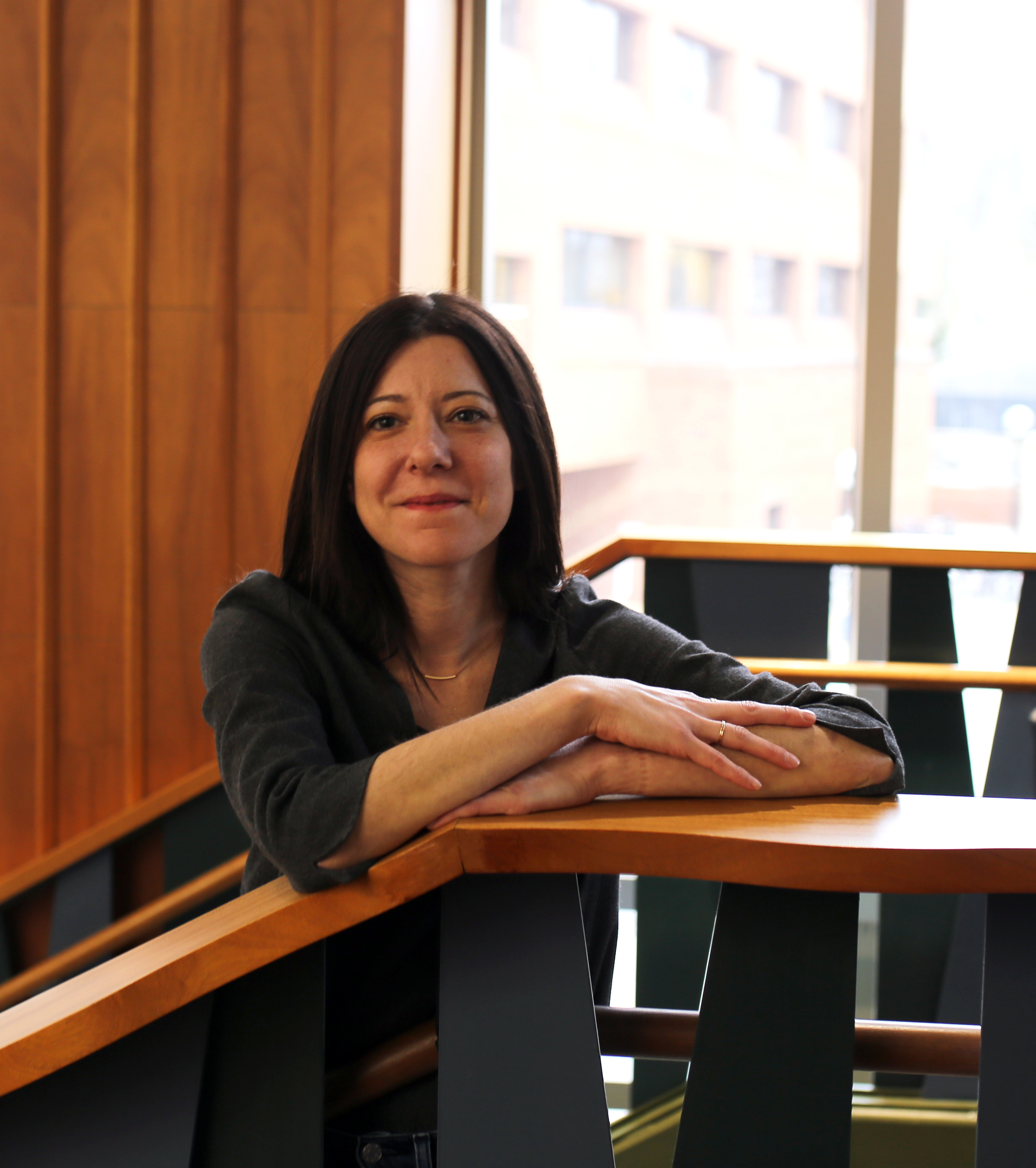 Kristi Gamarel is the John G. Searle Assistant Professor of Health Behavior and Health Education in the University of Michigan School of Public Health. Her research focuses on addressing health inequities experienced by LGBTQ+ communities. She is a founding member of the “Love Her Collective,” which is a community-academic partnership between the Trans Sistas of Color Project (TSoCP) with the expressed mission of holistically addressing the health needs of transgender women of color in Detroit, Michigan.
Kristi Gamarel is the John G. Searle Assistant Professor of Health Behavior and Health Education in the University of Michigan School of Public Health. Her research focuses on addressing health inequities experienced by LGBTQ+ communities. She is a founding member of the “Love Her Collective,” which is a community-academic partnership between the Trans Sistas of Color Project (TSoCP) with the expressed mission of holistically addressing the health needs of transgender women of color in Detroit, Michigan.
Lightning Talk: The Love Her Collective: A community-academic partnership to work towards inequity with and for trans women of color in Detroit VIEW INSPIRE LIGHTNING TALK HERE
This talk will introduce the Love Her Collective, which is a community-academic partnership with the Trans Sistas of Color Project. The Love Her Collective team members will describe our partnership and ongoing research and advocacy efforts designed to work towards health equity with and for transgender women of color in Detroit, Michigan.
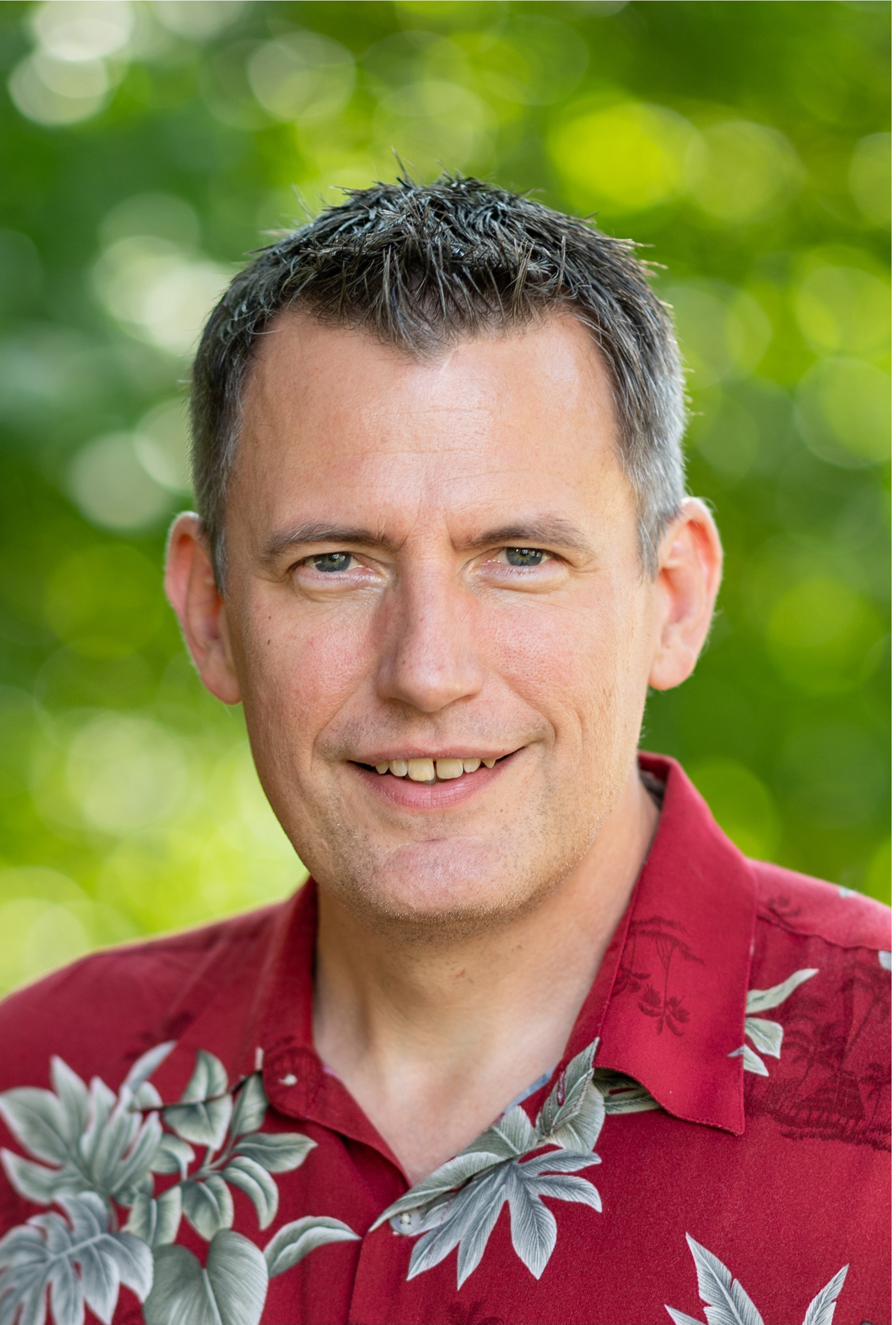 Nicolai Lehnert obtained a Diploma in Chemistry in 1995 from the Heinrich-Heine-University in Düsseldorf, Germany. He then moved to the Johannes Gutenberg-University in Mainz, Germany, where he received his Ph.D. in 1999 under the supervision of Priv.-Doz. Dr. F. Tuczek and Prof. P. Gütlich. From 1999 to 2001 he conducted postdoctoral research with Prof. E. I. Solomon at Stanford University. He then moved back to Germany for his Habilitation, which he received in 2006 from the Christian-Albrechts-University in Kiel, Germany, working with Prof. F. Tuczek. In 2006 he accepted a faculty position at the University of Michigan. His work is focused on the coordination chemistry of nitric oxide as it pertains to biological systems, in particular NO reductases, but also heme proteins and biocatalysis. In 2013 he formed a partnership with Cass Technical High School in Detroit to provide summer internships to Cass students to perform full-time research for seven weeks in a chemistry laboratory at the University of Michigan (the UM Detroit Research Internship Summer Experience, D-RISE).
Nicolai Lehnert obtained a Diploma in Chemistry in 1995 from the Heinrich-Heine-University in Düsseldorf, Germany. He then moved to the Johannes Gutenberg-University in Mainz, Germany, where he received his Ph.D. in 1999 under the supervision of Priv.-Doz. Dr. F. Tuczek and Prof. P. Gütlich. From 1999 to 2001 he conducted postdoctoral research with Prof. E. I. Solomon at Stanford University. He then moved back to Germany for his Habilitation, which he received in 2006 from the Christian-Albrechts-University in Kiel, Germany, working with Prof. F. Tuczek. In 2006 he accepted a faculty position at the University of Michigan. His work is focused on the coordination chemistry of nitric oxide as it pertains to biological systems, in particular NO reductases, but also heme proteins and biocatalysis. In 2013 he formed a partnership with Cass Technical High School in Detroit to provide summer internships to Cass students to perform full-time research for seven weeks in a chemistry laboratory at the University of Michigan (the UM Detroit Research Internship Summer Experience, D-RISE).
Lightning Talk: D-RISE: Encouraging and Growing STEM Participation
VIEW INSPIRE LIGHTNING TALK HERE
In 2013, Lehnert formed a partnership with Cass Tech in Detroit to provide summer internships to high school students from Cass Tech to perform full-time research for 7 weeks in a chemistry laboratory at the University of Michigan (the UM Detroit Research Internship Summer Experience, D-RISE). The goal of this program is to increase underrepresented minority participation in the sciences by motivating the participating students to attend college and work in STEM areas. The most important hallmark of D-RISE is that the high school students do not just observe their graduate students and/or postdoctoral mentors in the laboratory, but the high school students perform full-time hands-on research for 40 hours per week on projects that are directly related to their mentors‘ research projects. In this way, the participating high school students obtain a real research experience, and they are in fact able to produce enough results from their own work to fill full-size research posters at the end of the project. The second important hallmark of the program is the fact that the students actually stay on campus during the week (Mon. – Fri.), giving them a real college experience, and providing them with the opportunity to explore campus life (supervised by a chaperone) and to interact with undergraduate and graduate students and faculty “after hours”, and in this way, to build lasting relationships with their mentors.
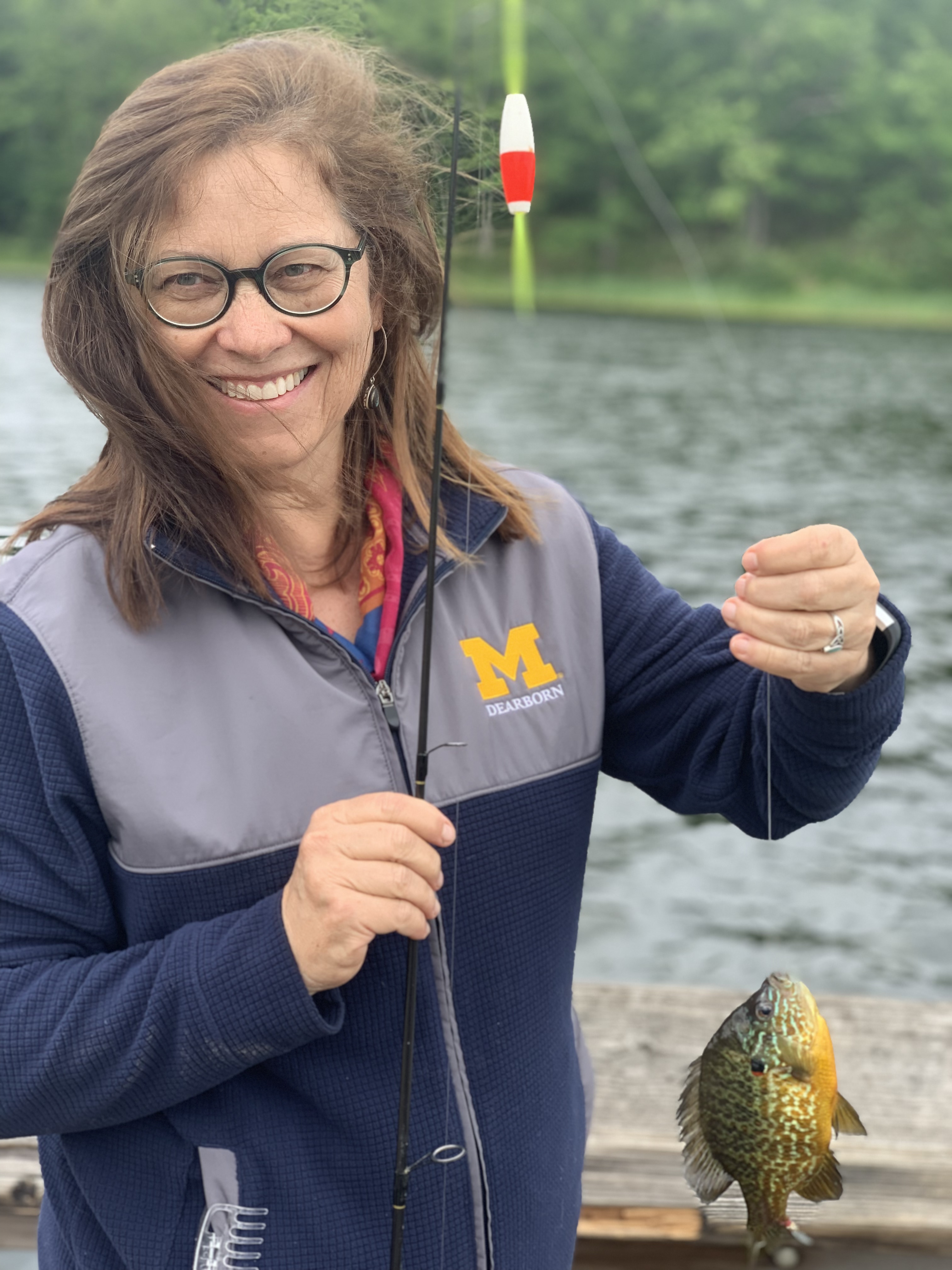
Marilee A. Benore is a Professor of Biochemistry and Biology in the Natural Sciences Department at the University of Michigan Dearborn. She teaches biochemistry courses as well as those that intersect science, equity, and inclusion. She is active in the American Society of Biochemistry and Molecular Biology, serving as National Director of the student chapters, and is a member of the Women in Biochemistry and Molecular Biology Committee. She is co-author of a popular lab manual. Her lab investigates vitamin transport using Riboflavin Binding Protein (RBP) in the hen as a model, and with collaborators is developing an assay to measure riboflavin in at-risk populations. In addition to lab work, she seeks to understand the persistence of women in STEM via oral histories and surveys. She has won awards for mentoring and is co-chair of the UM Academic Women’s Caucus Sarah Goddard Power Award Committee. She was director of the UM-Dearborn Women in Learning and Leadership and has been selected as an Arden Interdisciplinary Scholar. More information is available at umdearborn.edu/users/marilee.
Lightning Talk: STEM Women- the stories and the paths that illustrate the journey to a STEM career
VIEW INSPIRE LIGHTNING TALK HERE
As a scientist, Benore has found many ways of supporting girls and women in achieving success. She loved the interactions, the joy, the spontaneity, and how they could mentor and build confidence in young women. Benore attended a small catholic college and chose as a focus area to be immersed in a world of women dedicated to change through action. As a chemist in industry, she experienced demoralizing sexual harassment, impacting her decision to earn a PhD and make a difference in academics. After being awarded the Sarah Goddard Power award in 2004 she became active and co-chaired the awards for many years with the AWC and in partnership with CEW+. It is enormously important to share the stories of the awardees. Benore realized that she no longer wanted to focus on obstructions but explore the successful traits, experiences, and choices of women in STEM. This is a global issue, and the stories as oral history are potent in understanding resilience and success. Some people require a roadmap, and some just need roadside assistance. She wishes to share the stories to support others on their journeys to success.
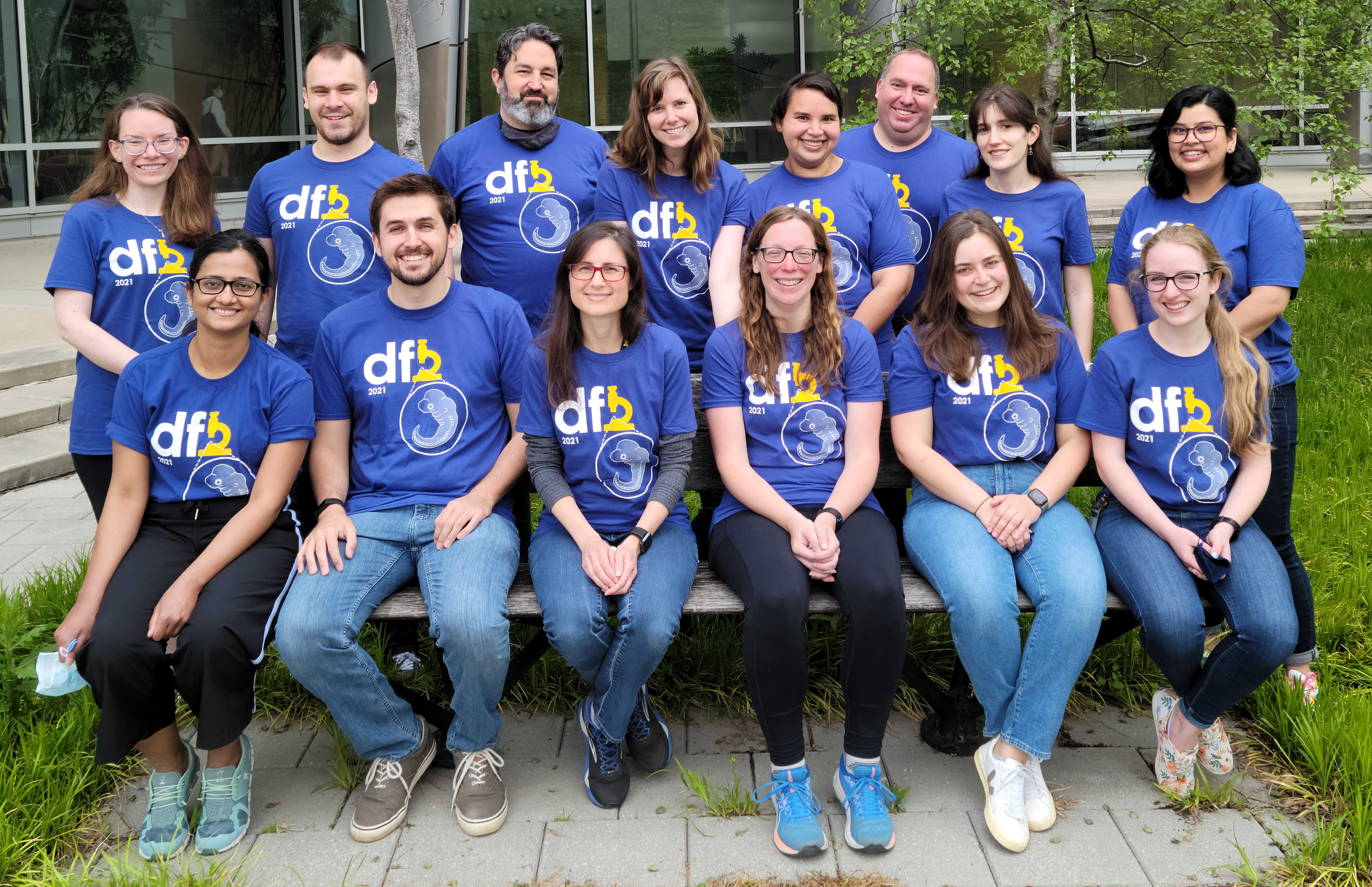 Developing Future Biologists (DFB) is an educational outreach organization led by graduate students and postdocs at the University of Michigan. Its mission is to ensure that the next generation of biologists, regardless of race, gender, or socioeconomic status, can learn the core concepts of developmental biology and are made aware of the vast opportunities that exist to pursue a career in the sciences. DFB organizes a week-long summer short course aimed at teaching undergraduate students fundamental concepts in developmental biology in a small class setting with close instructor-student mentorship. Throughout the week students attend interactive lectures, hands-on lab sections, and professional development workshops. More information is available at developingfuturebiologists.com.
Developing Future Biologists (DFB) is an educational outreach organization led by graduate students and postdocs at the University of Michigan. Its mission is to ensure that the next generation of biologists, regardless of race, gender, or socioeconomic status, can learn the core concepts of developmental biology and are made aware of the vast opportunities that exist to pursue a career in the sciences. DFB organizes a week-long summer short course aimed at teaching undergraduate students fundamental concepts in developmental biology in a small class setting with close instructor-student mentorship. Throughout the week students attend interactive lectures, hands-on lab sections, and professional development workshops. More information is available at developingfuturebiologists.com.
Lightning Talk: Developing Future Biologists: Removing barriers for students from underserved populations who wish to pursue careers in biomedical research.
VIEW INSPIRE LIGHTNING TALK HERE
Obtaining a biomedical research career is particularly challenging for underserved populations who face disadvantages including financial and travel limitations, and insufficient mentorship and networking. This lightning talk focuses on the impact that our lab-intensive short course has on success rates for underserved students, and strategies that we have employed to further promote the careers of these students. Developing Future Biologists (DFB), hosts a week-long immersive developmental biology short course to expose underserved undergraduates to numerous model organisms, professional development workshops, and panels, and ultimately to inspire them to pursue a biomedical career. We recently expanded our reach to include virtual conference awards, TA fellowships and paid summer research internships. Many of our student alumni have been accepted into post-baccalaureate, graduate, and professional programs. We are committed to promoting diversity and inclusion in biomedicine and believe programs like DFB are excellent stepping stones for propelling underserved undergraduates into biomedical research careers.
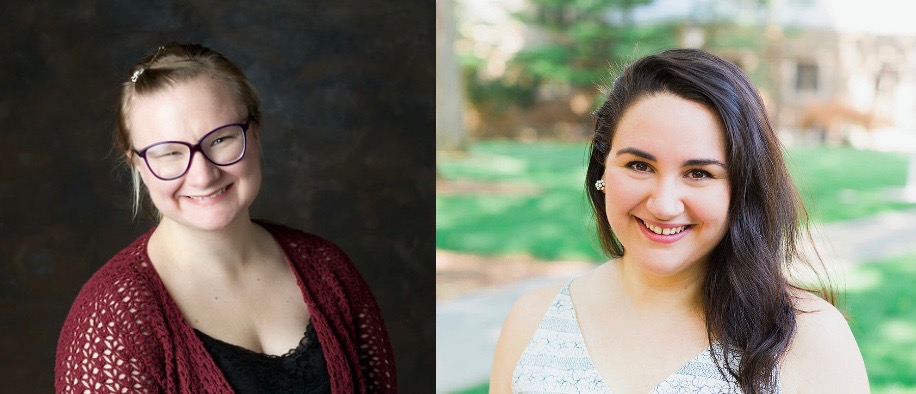 Caitlin Taylor (she/her) and Rikki Morrow-Spitzer (she/her) both currently serve as staff for the School of Music, Theatre & Dance, where they both received their degrees in music. In 2018, they helped establish the Faculty and Staff Allies Network for Sexual Misconduct, and in 2020 released the Sexual Misconduct Toolkit: a Guide for Faculty and Staff in the Performing Arts, which is now being used as a model across campus. They are both passionate about creating and evaluating programs, policies, and practices for greater equity and inclusion. More information is available at smtd.umich.edu/about/faculty-profiles/caitlin-taylor and smtd.umich.edu/about/faculty-profiles/rikki-morrow-spitzer.
Caitlin Taylor (she/her) and Rikki Morrow-Spitzer (she/her) both currently serve as staff for the School of Music, Theatre & Dance, where they both received their degrees in music. In 2018, they helped establish the Faculty and Staff Allies Network for Sexual Misconduct, and in 2020 released the Sexual Misconduct Toolkit: a Guide for Faculty and Staff in the Performing Arts, which is now being used as a model across campus. They are both passionate about creating and evaluating programs, policies, and practices for greater equity and inclusion. More information is available at smtd.umich.edu/about/faculty-profiles/caitlin-taylor and smtd.umich.edu/about/faculty-profiles/rikki-morrow-spitzer.
Lightning Talk: Addressing the Reality: A Journey of Creating a Community that is Free from Sexual Harassment and Misconduct
VIEW INSPIRE LIGHTNING TALK HERE
As staff at the School of Music, Theatre & Dance, we have been part of a community that has struggled on a very public forum from allegations of sexual misconduct and harassment over the past four years. As alumnae of the institution, we grappled deeply with the pain that our community has suffered, and have worked to begin shifting the culture to one that is equitable and inclusive, free from sexual harassment and misconduct. Specifically, we are working towards a culture of transparency, support, and accountability. Our lightning talk will outline the painful reality we found ourselves in, and the steps we have taken to reach our goals. This includes establishing a support network for faculty and staff, re-evaluating policies and processes, creating resources that are specific to our community, and building partnerships across campus for informed and long-term change.

